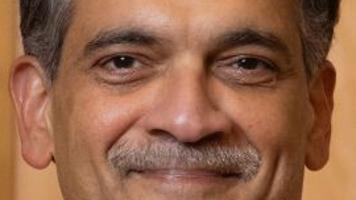Health
Greeley Health Leaders Warn Medicaid Cuts Could Harm Communities

Leaders in Greeley’s health care sector are expressing grave concerns regarding recent Medicaid funding cuts, warning that these reductions will negatively impact not just the uninsured, but the entire community across Colorado. On Wednesday, health care executives from organizations such as Banner Health, UCHealth, and Sunrise Community Health convened at the Monfort Children’s Clinic to discuss how federal legislation aimed at reducing Medicaid funding could destabilize health care access for many Coloradans.
City Councilman Tommy Butler underscored the critical role Medicaid plays for many residents, stating, “For many folks in Greeley, Medicaid is the lifeline that means they don’t need to choose between paying rent, putting food on the table and going to the doctor.” This sentiment captures the daily struggles faced by many in Weld County, where rising costs have become increasingly burdensome.
The legislation in question, known as the One Big Beautiful Bill Act, was a budget reconciliation measure that introduced various changes to Medicaid requirements. Among these is a new work requirement mandating a minimum of 80 hours of work per month, alongside limitations on state funding. According to the Colorado Department of Health Care and Financing, these changes could potentially lead to a loss of between $900 million and $2.5 billion in annual funding by 2032, endangering coverage for hundreds of thousands of individuals.
The urgency of these discussions intensified following the recent federal government shutdown, which resulted from a failure to extend Affordable Care Act Tax Credits. Should these tax credits expire at the end of the year, patients could face significantly increased health insurance premiums, threatening the viability of rural hospitals already operating under financial strain. “Ten rural hospitals in Colorado are at risk of closure today, and three are facing immediate danger,” cautioned Marilyn Schock, President of UCHealth Greeley Hospital.
The potential rise in health care costs, coupled with ongoing obligations to provide medical care, could lead to long-term consequences for the health care system. Dr. Mark Wallace, Chief Clinical Officer at Sunrise, noted that as Medicaid restrictions push more individuals into uninsured status, the burden on the health care system will increase. This could result in higher costs being passed on to consumers, ultimately leading to inflated insurance premiums.
As costs escalate, more individuals may defer necessary medical treatment until conditions worsen, which can complicate health issues and lead to more expensive interventions. Mitzi Moran, CEO of Sunrise Community Health, illustrated this dilemma by sharing, “When I’m uninsured, I often say, ‘I feel better. I feel all right. I’m not going to buy my diabetic medication.’” She emphasized that such short-sighted decisions can culminate in serious health crises, ultimately leaving individuals unable to work or support their families.
Despite the challenges posed by the One Big Beautiful Bill Act, Representative Gabe Evans, who voted in favor of the legislation, maintains that it will not adversely affect Medicaid recipients. He argues that the bill is designed to combat waste and fraud within the system. According to the Centers for Medicare and Medicaid Services, approximately $31 billion in Medicaid funds are lost to fraud, representing about 3% of Medicaid payments nationwide. While participants at the roundtable acknowledged the importance of addressing fraud, they cautioned against overlooking the broader implications of the funding cuts.
Currently, around 11,000 patients at Sunrise receive health care through Medicaid, a number that could dwindle significantly due to recent policy changes. Moran stated, “There are probably about 11,000 patients that are currently at Sunrise who will no longer have health insurance. If we suddenly have a fourth of our patients that are now on the sliding pay scale, we won’t have enough resources to support that.”
The impact of these changes extends beyond Sunrise, as nearly 36% of patients at Banner Health and around 30% of all Medicaid hospital care in Colorado is provided by UCHealth. In an email, UCHealth Vice President Dan Weaver revealed that last year, their facilities conducted approximately 1.1 million visits for patients covered by Medicaid.
As the meeting concluded, health care leaders committed to continuing their efforts to provide care to all who need it. They encouraged community members to advocate for their health care needs by contacting their representatives. “If we don’t invest through taxation in health care, then we are not going to be the kind of communities that we otherwise could be,” warned Alan Qualls, CEO of Banner Health. “Without health, you have nothing.”
-

 Technology4 months ago
Technology4 months agoDiscover the Top 10 Calorie Counting Apps of 2025
-

 Health2 months ago
Health2 months agoBella Hadid Shares Health Update After Treatment for Lyme Disease
-

 Health3 months ago
Health3 months agoErin Bates Shares Recovery Update Following Sepsis Complications
-

 Technology3 weeks ago
Technology3 weeks agoDiscover 2025’s Top GPUs for Exceptional 4K Gaming Performance
-

 Technology4 months ago
Technology4 months agoDiscover How to Reverse Image Search Using ChatGPT Effortlessly
-

 Technology2 months ago
Technology2 months agoElectric Moto Influencer Surronster Arrested in Tijuana
-

 Technology4 months ago
Technology4 months agoMeta Initiates $60B AI Data Center Expansion, Starting in Ohio
-

 Technology4 months ago
Technology4 months agoRecovering a Suspended TikTok Account: A Step-by-Step Guide
-

 Health4 months ago
Health4 months agoTested: Rab Firewall Mountain Jacket Survives Harsh Conditions
-

 Lifestyle4 months ago
Lifestyle4 months agoBelton Family Reunites After Daughter Survives Hill Country Floods
-

 Technology3 months ago
Technology3 months agoUncovering the Top Five Most Challenging Motorcycles to Ride
-

 Technology4 weeks ago
Technology4 weeks agoDiscover the Best Wireless Earbuds for Every Lifestyle





















